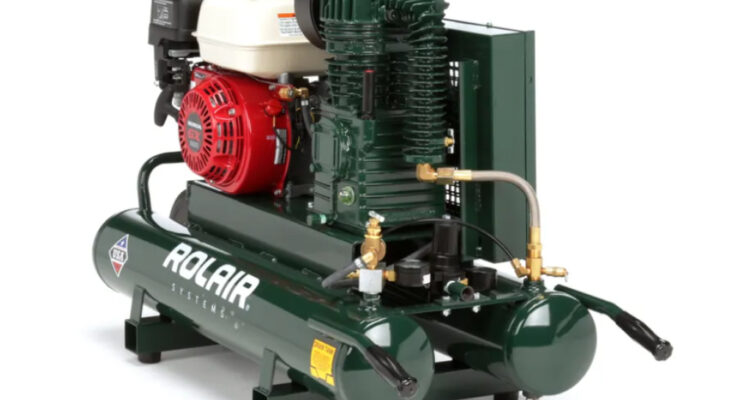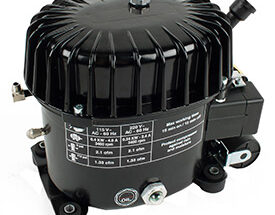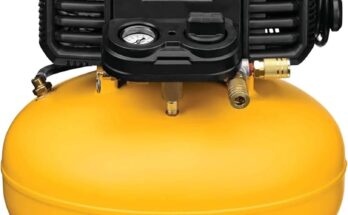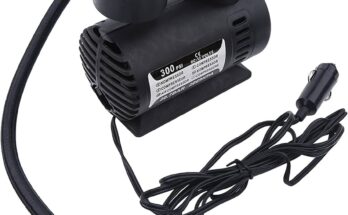So, you might think gas powered air compressors are too noisy and inconvenient compared to their electric counterparts, right? Well, let’s debunk that myth right away. Gas powered air compressors are actually incredibly efficient, powerful, and versatile tools that can make your life a whole lot easier, especially if you’re working in construction or other heavy-duty fields. In this blog, we’ll dive into what makes these machines tick and why you should consider one for your next project.
What Are Gas Powered Air Compressors?
Alright, let’s get down to the basics. A gas powered air compressor is a machine that converts power from a gasoline engine into potential energy stored in pressurized air. Think of it as a powerhouse that runs on gas, perfect for when you need a reliable air source away from electric outlets. These compressors are often used in construction sites, automotive shops, and even for DIY projects at home.
But how exactly do they work? It’s pretty straightforward. The gasoline engine powers the compressor pump, which compresses the air and stores it in a tank. When you need to use the air, it’s released through a hose to power tools like nail guns, paint sprayers, and more.
Gasoline Air Compressors vs. Electric Compressors
You might be wondering, why choose a gasoline air compressor over an electric one? Here’s the deal:
- Mobility: Gas powered compressors don’t tie you down to a power outlet. You can take them anywhere, which is a huge plus if you’re working on a remote site.
- Power: These machines pack a punch, providing higher PSI (pounds per square inch) and CFM (cubic feet per minute), making them ideal for heavy-duty tasks.
- Durability: Built to last, these compressors are tough and can handle rough conditions better than many electric models.
Gas powered compressors are designed for flexibility and strength. Whether you’re on a busy construction site or need to run a pneumatic tool in your backyard, these compressors get the job done without needing an electrical outlet.
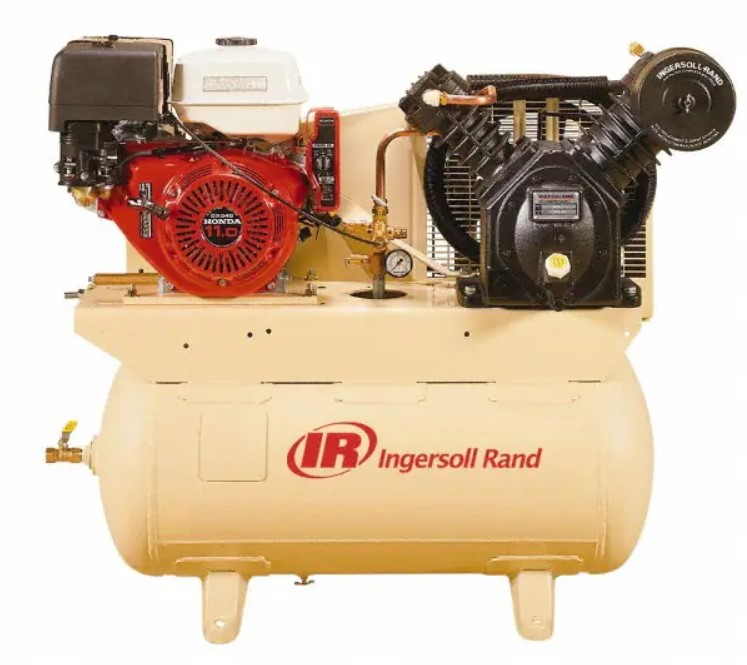
Photo By: mscdirect.com
Choosing the Right Gas Powered Air Compressor
So, now that you know what gas powered air compressors are and how they work, how do you choose the right one? It can be a bit overwhelming with all the options out there, but don’t worry, we’ve got you covered. Here are some key factors to consider:
Power and Performance
First things first, let’s talk power. When you’re shopping for a gas powered air compressor, you need to consider the PSI (pounds per square inch) and CFM (cubic feet per minute). These numbers indicate how much power and air volume the compressor can deliver.
- PSI: Higher PSI means more pressure. If you’re using tools like impact wrenches or spray guns, you’ll need a compressor with at least 150 PSI.
- CFM: This measures the volume of air. For heavy-duty tasks like running multiple tools simultaneously, look for a compressor with a high CFM rating, around 5 CFM or more.
Size and Portability
Do you need a compressor that you can easily move around? If yes, portability is key. Portable gas air compressors come in various sizes and weights, often with handles and wheels for easy transport.
- Lightweight Models: Ideal for small, quick tasks and easy to carry around.
- Stationary Models: Better for workshops where the compressor will stay in one place. These usually offer more power and a larger tank.
Tank Size
The tank size matters depending on how you plan to use your compressor.
- Small Tanks (under 6 gallons): Great for quick, intermittent tasks like inflating tires or brad nailing.
- Large Tanks (20 gallons or more): Necessary for continuous use, like spray painting or running high-demand tools without frequent breaks to refill air.
Noise Level
Let’s face it, gas powered air compressors can be noisy. But not all of them! If noise is a concern, look for models labeled as “quiet” or “low noise.” These are designed to reduce the noise level significantly, making them suitable for residential areas or indoor use.
Budget
Of course, you’ll want to consider your budget. There are plenty of options that offer great performance without breaking the bank. Look for compressors that provide the best value for your money. Don’t just go for the cheapest option; balance cost with the features you need.
Gasoline vs. Fuel Powered Air Compressors
Sometimes, you’ll see terms like “gasoline air compressors” or “fuel powered air compressors.” They essentially mean the same thing: compressors that run on gasoline. When shopping, focus more on the features and specs rather than getting hung up on terminology.
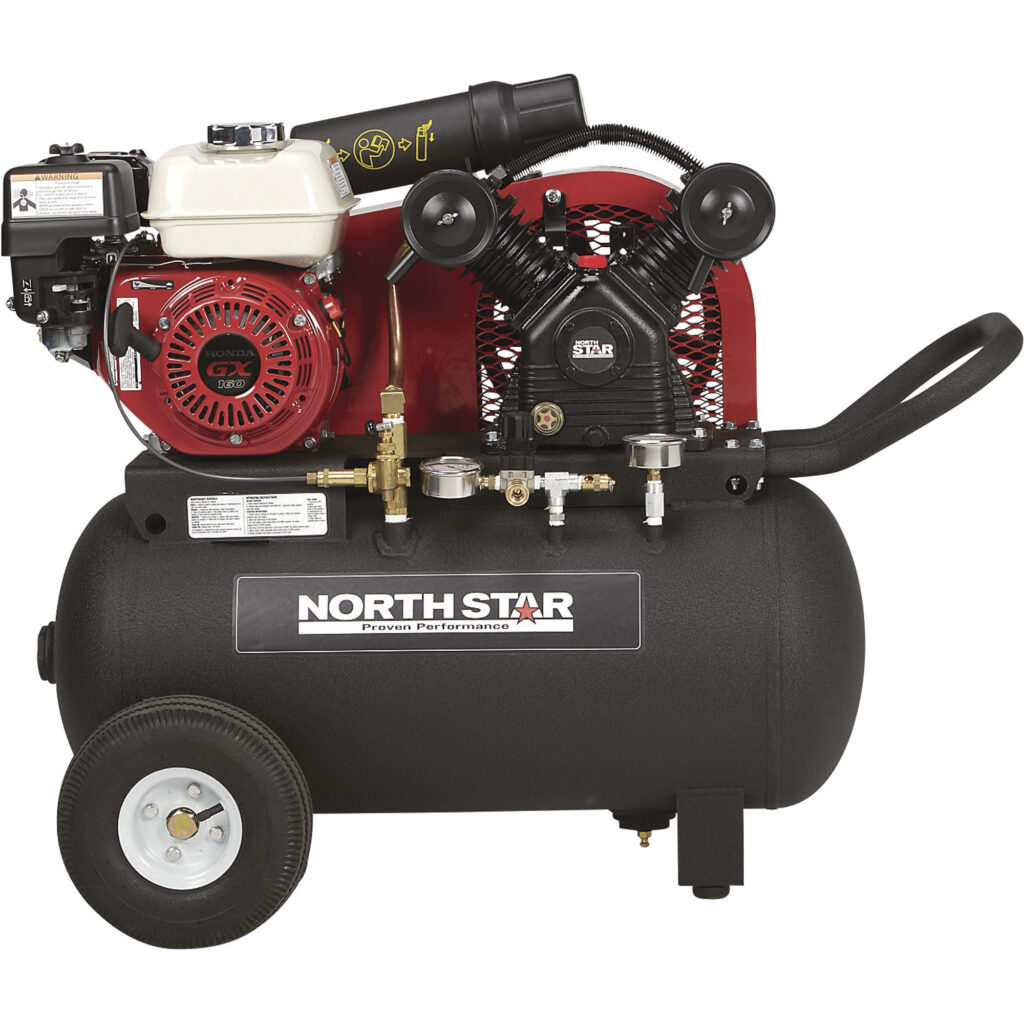
Photo By: northerntool.com
Best Gas Powered Air Compressors for Specific Uses
You might believe that all gas powered air compressors are pretty much the same. Not true! Different tasks require different features. Let’s explore the best options for specific uses.
Best for Construction
If you’re in construction, you need a robust, high-power compressor.
- Top Pick: The Industrial Air Contractor is a favorite. With 155 PSI and 5.0 CFM at 90 PSI, it can handle heavy-duty tools like jackhammers and impact wrenches effortlessly.
Best for Painting
For painting, you need a compressor with a consistent air flow and high capacity.
- Top Pick: The DeWalt DXCMTA5090412 is ideal. It offers 155 PSI and 6.9 CFM at 40 PSI, ensuring smooth, even paint application without interruptions.
Portable Gas Powered Air Compressors
Sometimes, you need to take your compressor on the go. Here are the top portable options.
- Top Pick: The Makita MAC5501G stands out with its compact design and 10-gallon tank. It’s lightweight yet powerful, perfect for moving around job sites.
Affordable Industrial Options
Need industrial power without the hefty price tag? There are budget-friendly choices out there.
- Top Pick: The Campbell Hausfeld VT6195 offers excellent performance with a 30-gallon tank and 135 PSI, all at a reasonable price.
Eco-Friendly Choices
Concerned about the environment? Opt for eco-friendly models that offer lower emissions and better fuel efficiency.
- Top Pick: The Rolair GD4000PV5H is an eco-friendly option with a Honda engine that meets EPA and CARB standards for low emissions.
Conclusion
Choosing the right gas powered air compressor boils down to understanding your specific needs and knowing what features to look for. Whether you need something for heavy-duty construction, precision painting, or just a portable option for various tasks, there’s a perfect compressor out there for you. Don’t just go by the common belief that all compressors are noisy or hard to handle. With the right information, you can make a smart, informed choice that will serve you well in all your projects.
FAQ Section
1. What is a gas powered air compressor?
A gas powered air compressor is a machine that uses a gasoline engine to compress air and store it in a tank. This compressed air can then be used to power various tools and equipment, making it super handy for construction sites, automotive work, and DIY projects.
2. How do I choose the right gas powered air compressor?
Consider the following factors: power (PSI and CFM), size and portability, tank size, noise level, and your budget. Think about what tasks you’ll be using the compressor for and choose one that fits those needs.
3. Why should I choose a gas powered air compressor over an electric one?
Gas powered air compressors offer more mobility since they don’t need to be plugged in. They also tend to be more powerful, making them suitable for heavy-duty tasks. Plus, they are more durable and can handle rough conditions better.
4. Are gas powered air compressors noisy?
Yes, they can be noisy, but many models are designed to be quieter. Look for “quiet” or “low noise” models if noise is a concern.
5. What are the best gas powered air compressors for construction work?
For construction work, you need a high-power compressor. The Industrial Air Contractor is a top pick, with 155 PSI and 5.0 CFM at 90 PSI, making it perfect for heavy-duty tools.
6. What should I look for in a gas powered air compressor for painting?
For painting, look for a compressor with consistent air flow and high capacity. The DeWalt DXCMTA5090412 is great, offering 155 PSI and 6.9 CFM at 40 PSI, ensuring smooth and even paint application.
7. Can I find affordable gas powered air compressors for industrial use?
Yes, there are affordable options that still offer great performance. The Campbell Hausfeld VT6195 is a budget-friendly choice with a 30-gallon tank and 135 PSI.
8. Are there eco-friendly gas powered air compressors?
Yes, some models are designed to be eco-friendly with lower emissions and better fuel efficiency. The Rolair GD4000PV5H is an excellent eco-friendly option that meets EPA and CARB standards.
9. How do I maintain a gas powered air compressor?
Regular maintenance is key. Check and change the oil, clean the air filter, and inspect hoses and connections for wear and tear. Following the manufacturer’s maintenance schedule will keep your compressor running smoothly.
10. What size tank do I need for my gas powered air compressor?
The tank size you need depends on the tasks you’ll be doing. Small tanks (under 6 gallons) are good for quick, intermittent tasks, while larger tanks (20 gallons or more) are better for continuous use.
11. Are portable gas powered air compressors effective?
Yes, portable gas air compressors are effective and convenient. The Makita MAC5501G is a great portable option with a compact design and 10-gallon tank, perfect for moving around job sites.
12. Can I use a gas powered air compressor indoors?
While you can use them indoors, it’s important to have proper ventilation because they emit exhaust fumes. If noise and fumes are a concern, consider quieter and eco-friendly models.
13. How do gas powered air compressors compare to electric ones in terms of cost?
Gas powered air compressors can be more expensive upfront due to their engines and higher power. However, they offer greater mobility and power, which can be more cost-effective in the long run for certain tasks.
14. What’s the difference between gasoline air compressors and fuel powered air compressors?
There’s no difference; both terms refer to air compressors that run on gasoline. Focus on the specs and features rather than the terminology.
15. How long do gas powered air compressors last?
With proper maintenance, a good quality gas powered air compressor can last many years, even decades. Regular oil changes, cleaning, and inspections will help extend its lifespan.
